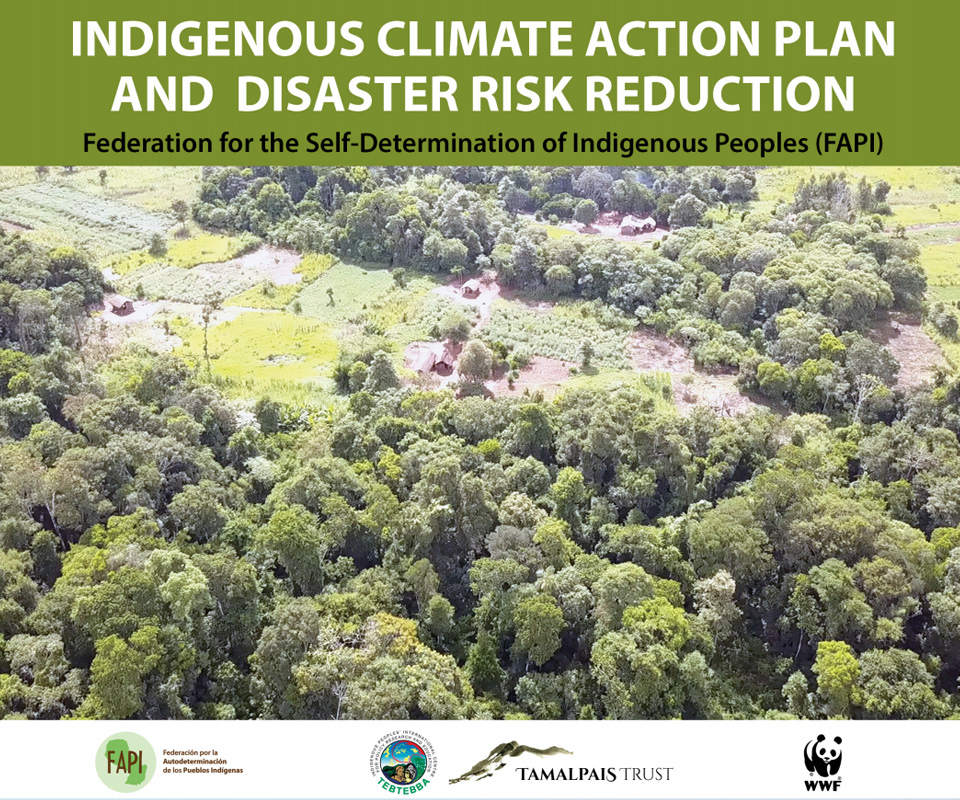First published on 02/23/2021, and last updated on 03/08/2021
In Paraguay, the Federation for the Self-Determination of Indigenous Peoples – FAPI (Member, ICCA Consortium) contributes to national climate plans.
By Federation for the Self-Determination of Indigenous Peoples (Member, ICCA Consortium)
FAPI – Federation for the Self-Determination of Indigenous Peoples (Member, ICCA Consortium) in Paraguay has delivered its Indigenous Climate Action and Disaster Risk Reduction Plan to the Ministry of Environment and Sustainable Development of Paraguay as part of the Nationally Determined Contributions (NDC) of the Country.
Download the document (PDF file) from here in English and Spanish.
The action plan has been prepared by 13 indigenous organizations members of FAPI, as a contribution of Indigenous Peoples to the Nationally Determined Contributions (NDC) of Paraguay. On behalf of the National Directorate of Climate Change, its Director Ulises Lovera has received the plan at a meeting with Indigenous leaders.
The development of the action plan was supported by WWF Paraguay, TEBTEBBA and Tamalpais Trust. FAPI led this collaborative project for strengthening capacities for the development initiatives for the protection and conservation of biocultural resources of Indigenous territories, through the integral management and promotion of proactive measures in the face of climate change.
Video: Indigenous Climate Action and Disaster Risk Reduction Plan development process
Indigenous organizations have developed this plan driven by the priority that for climate action to succeed, Indigenous peoples must be considered key actors and essential agents of change. Indigenous peoples must participate in developing environmental and sustainable development policies. This is also a must-do for governments as directed by Article 7 of ILO Convention 169: “Governments shall take measures, in cooperation with the peoples concerned, to protect and preserve the environment of the territories they inhabit.”
FAPI leaders have always stressed the importance of ensuring the participation of Indigenous peoples in the implementation and evaluation of sustainable policies and measures to combat climate change in Paraguay. Although Indigenous peoples contribute little to greenhouse gas emissions, they have ancestrally developed and transmitted conservation practices. We can interpret the effects of climate change and propose measures and actions combining traditional knowledge and their creative innovations so that these changes do not further affect their lands/territories and our way of life.
For years, FAPI has been committed to participating in processes that seek to reverse the current situation by strengthening the capacities of our member Associations to address the problem of Climate Change. FAPI is also committed to institutional advocacy to propose policies and actions that have their origins in participatory processes, which are born from the culture and spirituality of our peoples and contribute to joint efforts in national and international processes.
Featured image: Cover of the Indigenous Plan for Climate
Action and Disaster Risk Reduction. Photo © FAPI
